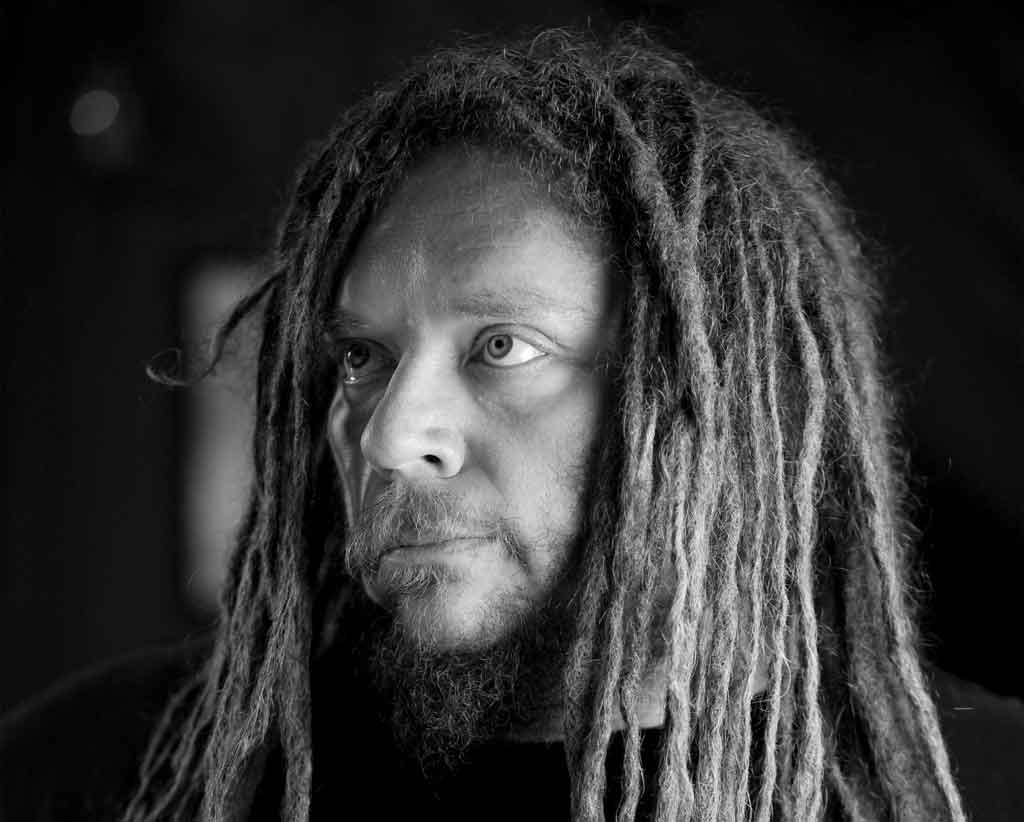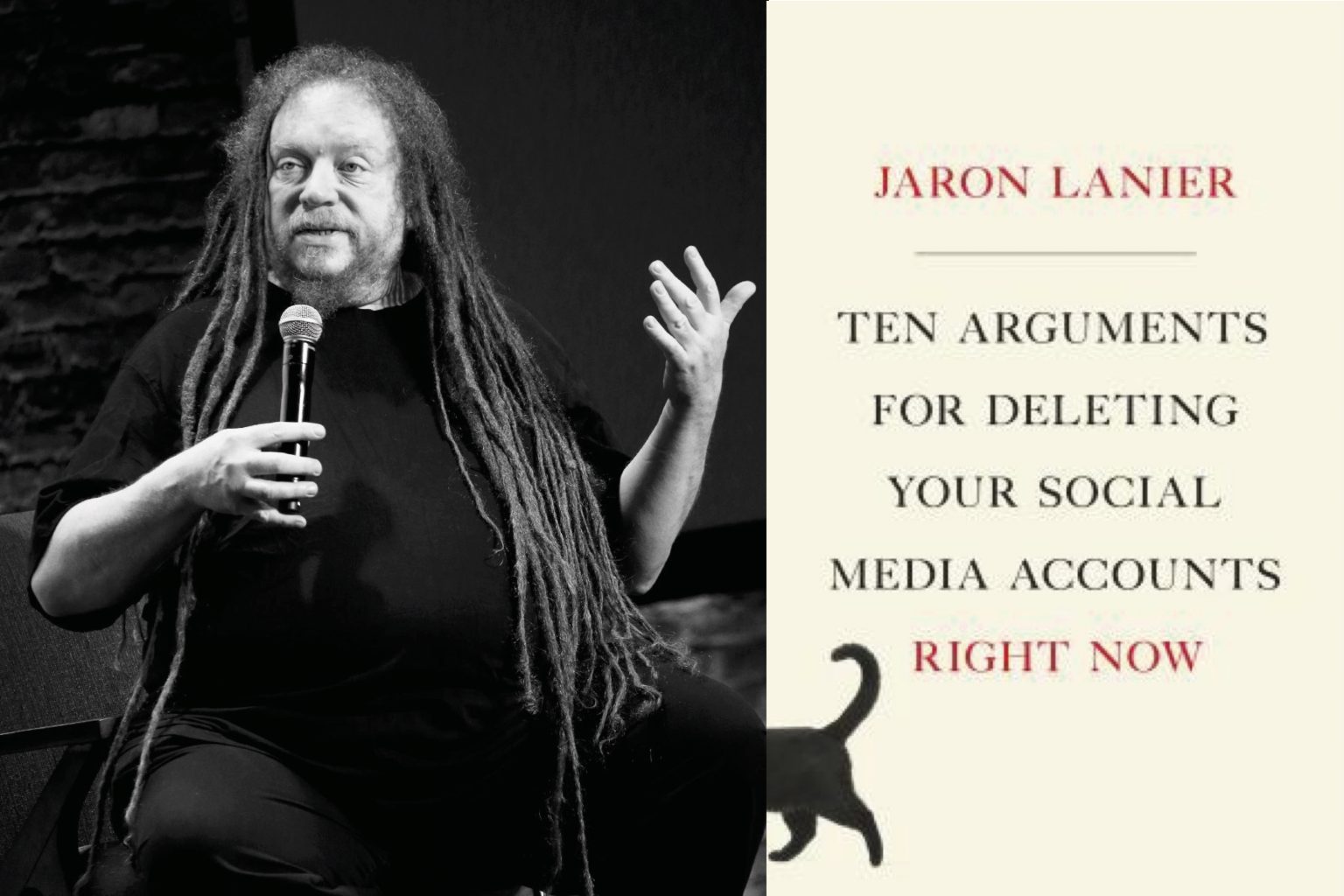
Social networks were supposed to be the ultimate tool of democratization. In the earliest days of the internet, many in the tech world congratulated themselves for ushering in a new era of dialogue in which increasing the number of voices would lead to a more civilized, informed society.
As a forefather of the digital age, Jaron Lanier was not only present during this time; he is widely considered one of the digital world’s most influential creators. Lanier is often lauded by tech enthusiasts as the “Father of Virtual Reality.” In 1985, he co-founded the first company to sell wearable virtual reality gloves and goggles, and in 1997, he served as chief scientist for a project largely responsible for broadening the internet for global use — a project called Internet2.
Lanier has since ascended to guru status in tech circles, issuing warnings about a digital world he helped make. Back in 1992, he predicted a society in which people live “in a sort of fetal position, where are seated in a soft chair looking at the world through a glass square.”
Lanier’s critique went a step further, with his suggestion that “there’s a Western myth that technology will save us.”
Presently, countries including the United States are struggling to tamp down on the violent extremism and political manipulation on social networks like Twitter, Facebook and YouTube.
Lanier has responded with one last, desperate request: Delete your account.

In his latest book, Ten Arguments for Deleting Your Social Media Accounts Right Now, Lanier suggests social networks are designed to achieve this dysfunction.
HuffPost talked with Lanier about the dangerous digital world, its investment in hatred and why you need to disconnect before it’s too late.
What’s the most pressing reason for people to get off their social networks?
Every example I know of where somebody has done research on those who have deleted their accounts has found that, on the whole, almost everyone feels better, healthier, more connected, better informed, they feel they have more free time, and they’re more fulfilled. I mean, it just seems to be a positive experience for almost everyone; that doesn’t mean it will be positive for any particular person.
I think it’s really urgent that, since a lot of people have grown up in a system that was really designed to benefit a few people at the tops of a few companies, they should question whether this thing, which is so important in their lives, is really serving them or not.
This is just like those other examples in the past where you have a mass addiction with a commercial interest behind it. The difference, in this case, is that the side effect is to disconnect humanity from reality.Jaron Lanier
What about the bigger picture? I know you’ve discussed how social media impacts societies. Can you elaborate on that?
The great danger of the current system is that it creates a mass addiction, and we’ve had mass addictions in the past that were connected to commercial interests. It used to be that people smoked everywhere and everyone was addicted to cigarettes — thought they were cool — so it was impossible to have a conversation about doing away with them. And then finally, there were enough people who weren’t addicted for us to have a conversation, and we realized — “Hey, this is stupid; we should at least not have cigarettes in public places.” And it really helped the world.
We had a similar thing with drunk drivers. We’ve had some issues with gambling that are actually, technically, more similar to social media addiction. So in a sense, this is just like those other examples in the past where you have a mass addiction with a commercial interest behind it. The difference, in this case, is that the side effect is to disconnect humanity from reality.
Is it sobering for you to see that some of your concerns about the dangers of social media are materializing in devastating ways?
The thing is, there have been a lot of excellent warnings. Science fiction has done an excellent job of presenting warnings; I think the “Matrix” movies showed the dark side of trying to make some sort of idealized digital society. The thing is, there’s been a really rich and wonderful culture of warnings about this stuff for decades. And if we really want to go back, in 1907, decades before computers existed, there was a story called “The Machine Stops” by E.M. Forster.
There’s been this literature of caution for decades, and it just didn’t do any good. So now we’re in this point of desperately trying to undo this blunder and get to a solution. It’s disheartening that the warnings didn’t do any good, but that’s what happened.
Essentially, what happens is Facebook is this machine that takes good intentions and turns them into ugly, horrible social events.Jaron Lanier
Why weren’t tech developers more considerate of the negative impacts of their creation?
In the ’80s and ’90s, there was a very intense utopian feeling in the tech world, and if you didn’t buy into it, you were socially outcast. It was very, very difficult. There were periods when I started to buy into it because I just couldn’t take the social pressure, but for the most part, I did try to resist it and I lost a lot of friends. I was really heartbroken.
And the thing is, the people who were in the utopian mindset, who were often very cool and very popular — it’s… it’s kind of tragic.
How do you go about convincing people that the internet and social media are worth saving when some of their experiences online are so awful?
That’s a hard question, honestly. I’m still a believer that the internet and this project of connected media can turn out well. It might be the thing that destroys us. It might be the thing that makes us so crazy that we can’t deal with the climate and just go extinct, and in 50 million years some smart octopus comes along and tries again. [Laughs.]But I’m not ready to give up yet, you know? I still think we can make this work. There were times when the internet was pretty sweet and nice.
Does that golden era predate social media?
Well, I don’t know that there was ever a golden era. Social media has never really had a chance to be good. There’s no proof that you can have some globally scaled thing like that that remains pleasant, but I don’t think we have any disproof. I think it’s still an open question.
It just seems to me that the dominant services, which are mostly owned by Google and Facebook — things like YouTube and WhatsApp — these things are driven by the manipulation model where all the money is made by third parties who are trying to manipulate the people who are their users. If that’s the way the system is designed at its core, I don’t think it has any chanceto be good; it’s born to be terrible.
There is something a little screwy about Twitter always having a disproportionately high number of black users, yet a disproportionately low number of black employees.Jaron Lanier
You’ve previously written about how the current social media model pits activist groups like the Black Lives Matter movement against the KKK in some pretty explicit ways. Given that, can modern activism exist in the absence of social media? What does that look like?
I think modern activism can only be relevant and helpful outside of social media. I think anything that happens within social media is destructive, and I’ll just say that categorically.
I know that sounds shocking, and it will generate a vociferous objection from a lot of people who believe they’re using social media for effective activism. But what I want to point out is that what you see of social media, which feels so positive and is entirely authentic in that little bubble you’re in, that’s only a small part of the picture.
In the bigger picture, the communications you’re entering in the system in your circle of people who are trying to be activists, that information is applied by the algorithms behind the scenes to maximize engagement and profit for companies like Facebook. And they totally don’t care about you. They totally don’t. So the question is, if you’ve input all of this, how can they get the most money out of it?
In what ways are social media companies profiting from these activist groups?
The types of emotions that can be most easily raised online are negative ones: fear, anger, paranoia, social anxiety, jealousy, these kinds of things. So if they can find a group in which they can elicit those emotions from your communication, they’re going to keep on reinforcing that because they can get more engagement, action, and more money out of that group than out of you.
So it’s not just that social media pits Black Lives Matter against the KKK; it’s that the modern version of the KKK is people who are introduced to each other over Facebook and are constantly goaded and reinforced by Facebook because the company makes more money from them.
Essentially, what happens is Facebook is this machine that takes good intentions and turns them into ugly, horrible social events.So there’s no way to use a platform like Facebook for social activism without it being horribly counterproductive in the end.
Over the last few years, we’ve observed a public discussion about diversity in tech. It seems diversity of all sorts would upset the current model, which you suggest favors bullies and the privileged. We like to believe resistence to diversity is about bias, but I’m wondering if it’s about maintaining the systems you’ve discussed.
There is something a little screwy about Twitter always having a disproportionately high number of black users, yet a disproportionately low number of black employees. You look at that and you wonder what the fuck that’s about. It’s weird.
Normally, a business says, “Wow, this is the demographic that likes our stuff; let’s get some people who connect with that demographic.” The problem with Silicon Valley diversity is that there’s a certain kind of “nerd persona” that’s largely white, Indian or Chinese, and that persona dominates and excludes, so it’s a strange situation.
This story was originally published here